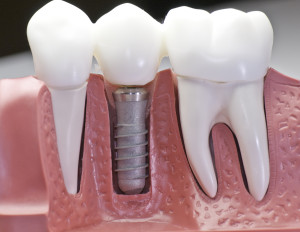


slider-wide-1
slider-wide-2
slider-wide-3
 Although the American Dental Association doesn’t consider cosmetic dentistry an official area of specialization, there are a lot of dentists out there who choose to refer to themselves as cosmetic dentists. When deciding which of these dentists to visit, how can you be sure which ones are trustworthy and qualified? Before choosing a cosmetic dentist, consider reading through the following tips.
Although the American Dental Association doesn’t consider cosmetic dentistry an official area of specialization, there are a lot of dentists out there who choose to refer to themselves as cosmetic dentists. When deciding which of these dentists to visit, how can you be sure which ones are trustworthy and qualified? Before choosing a cosmetic dentist, consider reading through the following tips.
Education
Cosmetic dentistry often involves advanced techniques that aren’t taught in standard dental school. A good cosmetic dentist will have taken extra courses after graduation to familiarize themselves with these techniques. These courses usually focus on advanced cosmetic procedures such as placing porcelain veneers, using lasers and using corrective devices like Invisalign. Before choosing a dentist, research their background and education to find out whether or not they have completed additional training.
Professional Affiliations
Ideally, you should look for a cosmetic dentist who is a member of one or more well-respected professional organizations. The American Academy of cosmetic dentistry is one of the more well-known associations that cosmetic dentists can join. Although a membership to this group doesn’t automatically guarantee that a particular dentist is a good choice, it does indicate that they take their job seriously otherwise, they wouldn’t have been willing to invest in a membership.
Payment Methods
Cosmetic dental procedures usually aren’t covered by health insurance. That means that you will need to pay for any work you have done out of your own pocket. When evaluating dentists, ask them about the payment options that they have available.
Availability
Look for a dentist whose office hours work well with your schedule. You may also want to consider a dentist who is qualified to provide services to every member of your family.
Office Location
Most cosmetic procedures require more than one appointment. Having to go back for future visits is easier when you choose an office that is conveniently located.
Scheduling Time
Many cosmetic procedures take a long time to finish. It is important to choose an office where your appointment window is long enough that your dentist doesn’t have to rush.
Access To Technology
Dental technology has come a long way over the last few years. By choosing an office that incorporates modern tools such as digital x-rays, lasers, intra-oral cameras, and monitors in the exam room, you can be sure that you are getting the most advanced care available. Don’t forget to discuss the type of anesthesia that the dentist uses during procedures.
Patient Comfort
When you visit a dentist, you should remain comfortable throughout the entire procedure. Look for a dental office that makes patient comfort a priority.
An Excellent Portfolio
Any good cosmetic dentist should be happy to show you before-and-after photos of some of the patients they have worked with in the past.
Digital Imaging
Many cosmetic dentists use imaging programs to digitally demonstrate to their patients what the final results will look like.
It is important to put careful thought into choosing a cosmetic dentist. If you choose a dentist who is not qualified, you could be exposed to safety issues or you may wind up having problems or complications after your visit. Don’t be afraid to ask for a consultation before deciding on a dentist. This will give you a chance to talk about your situation and to get a feel for how qualified the dentist is.
Before the dentist begins work, have a plan in place regarding your treatment. Talk about how often you will need to return for additional appointments and how you will pay for the work.
Ultimately, the dentist that you choose should give you a great sense of confidence and should make the process of having dental work done as easy as possible. Even though cosmetic dental procedures can be time-consuming and expensive, they are usually worth it when you consider all of the ways that they can increase your self-esteem and self-confidence.
 It has been proven that dental implants are the most functionally effective and natural looking option for treating supporting structures and missing teeth, since they are more durable and stronger than alternative dentures and bridges are. Implants function and look like normal teeth while preserving the neighboring teeth’s quality and preventing the gum tissue and bone from collapsing.
It has been proven that dental implants are the most functionally effective and natural looking option for treating supporting structures and missing teeth, since they are more durable and stronger than alternative dentures and bridges are. Implants function and look like normal teeth while preserving the neighboring teeth’s quality and preventing the gum tissue and bone from collapsing.
Implant candidates have adequate bone and good oral health overall which a doctor will determine. Usually smokers are advised to quit before they undergo the procedure. Patients need to commit themselves to practicing good oral hygiene on an ongoing basis. While the implants are not vulnerable to decay, they may be affected adversely via infection from the surrounding gums.
It is very important to carefully choose an oral surgeon for this specialized and expensive procedure. A small screw holds the dental implant in and extends all the way into the jaw bone. Great skill must be used by a doctor to drill the pilot hole to avoid nerve and other types of damage to the jaw structure or face. To achieve the best results, most likely your surgeon will work with a team of other specialists, which include a prosthodontist who creates the crown and a periodontist.
When planning the procedure timing is very important. The surgery is done in either a hospital or dental office and may take several hours to complete. Recovery may take as long as seven days and during that time the patient will have to eat only soft foods. Once the initial screw has been inserted, you will need to wait as long as six months before the last procedure for the screw to anchor and heal completely.
During the osseointegration process a temporary crown is placed. The titanium screw irreversibly bonds to the living bone tissue. Once that phase is over, a permanent crown may be installed onto the screw. That step may take a few months since several fittings might be needed.
The best results are often achieved when you plan to start your implant process soon after the original tooth is removed. Work closely with your doctor to choose the best timing for having your procedure. One of the more common reasons why a dental implant fails is due to the healing process being improperly completed.
Other risks include sinus problems or infection. However, despite these risks, there is a 90 percent and higher success rate for dental implants, with certain placements achieving higher success rates compared to others.